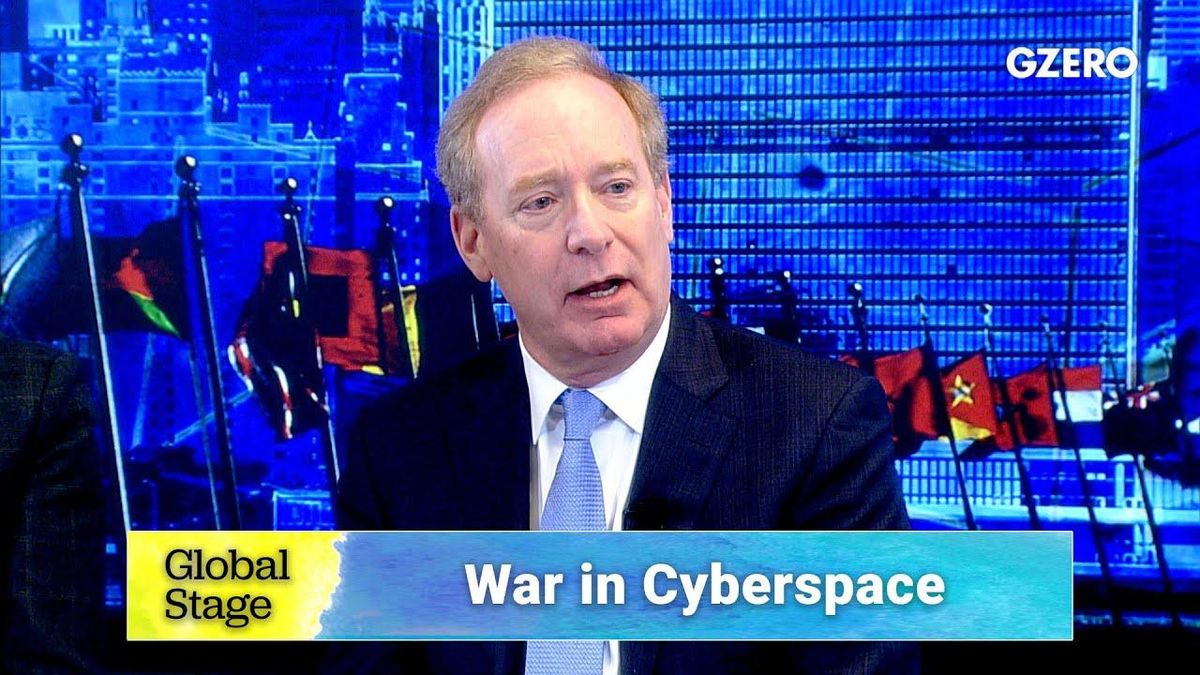Russia freezing out Ukrainian civilians because it can't beat military, says Microsoft's Brad Smith
What's Russia doing differently now in Ukraine compared to a few months ago?
Microsoft President and Vice Chair Brad Smith thinks the Russians have clearly failed to defeat Ukrainian soldiers, so they've turned to using their weapons against the civilian population and knocking out their power.
"It's as if they're hoping to freeze out 40 million people and force them to flee," he says during a Global Stage livestream conversation hosted by GZERO in partnership with Microsoft.
Meanwhile, cyberattacks are spreading beyond Ukraine's borders to countries like Poland. Still, Smith says the $423 million in aid his company has provided has helped Ukraine hold the line.
What's more troubling, he adds, is that Russia is doing the opposite of what the international community set out to do with the Geneva Convention: fight wars with military force and protect civilians.
Watch the full Global Stage livestream conversation on "The Road to 2030: Getting Global Goals Back on Track."
- 2022 has been rough. Will 2023 be any better? ›
- Why hasn’t Ukraine suffered a debilitating Russian cyberattack? ›
- Who can solve the world's "emergency of global proportions"? ›
- Microsoft president Brad Smith has a plan to meet the UN's goals ›
- Brad Smith: Russia's war in Ukraine started on Feb 23 in cyberspace ›

















